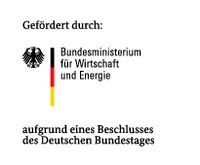eXtremOS – Value of flexibility in the context of the European energy market coupling under extreme technological, regulatory and societal developments
| Partners | Chair of Energy Economy and Application Technology – TUM (Prof. Wagner) The Research Center for Energy Economics (FfE e.V.) Forschungsgesellschaft für Energiewirtschaft mbH Institute for Technology Assessment and Systems Analysis – Karlsruher Institute of Technology (Prof. Grunwald) Agora Energiewende |
| Funding | Federal Ministry for Economic Affairs and Energy (BMWi) |
| Duration | January 2018 to March 2021 |
| Contact | M.Sc. Soner Candas |
Overview on the project eXtremOS
Widespread expansion of renewable energies in Europe bestows a central role to flexibility, which is to a large extent provided via cross-country energy exchange. In that regard, the central location of Germany in particular pronounces the importance of the developments in its neighboring countries and the analysis of their implications. A central aspect of the project “eXtremOS” thus primarily involves carrying out scenario simulations which take extreme regulatory, economic and technical developments into account. Possible extreme developments are, among others, breakthroughs in new technologies or steep price reductions of existing technologies, short-term political decisions such as carbon taxation or technology bans, and shifts in the societal tendencies such as energy consumption.
As the project outcome, “eXtremOS” aims to deliver value propositions on flexibility in the interface between supply and demand, in respect of the influence of the European energy market coupling combined with extreme technological and regulatory developments. To this end, decisive extreme developments are identified, a comprehensive database on neighboring energy systems is established, the domain of existing models are extended, and conclusions on various future visions are drawn.
Within the scope of the project, ENS employs its expertise in the field of linear optimization, and develops a flexible decomposition framework in order to achieve feasible computing times in energy system models.

Project results
As a result of the project eXtremOS the optimization framework of the chair ENS "urbs" was extended by a decomposition method. The repository of urbs with the implemented methods can be accessed under the following link:
https://github.com/tum-ens/urbs/tree/extremos
Detailed documentation and a tutorial on how to use the decomposition method can be found at the following link:
https://urbs.readthedocs.io/en/extremos/admm.html
In addition, a MATLAB-based decomposition interface was developed and integrated with the power system modeling framework ISAaR. The repository of this decomposition interface can be accessed at the following link:
https://github.com/tum-ens/admmatlab
A MOOC (Massive Open Online Course) on "Decomposition Methods in Energy Systems Modeling" has also been created as part of the eXtremOS project. This can be accessed at the following link:
Publications
- Candas, Soner; Guminski, Andrej; Fiedler, Claudia; Pellinger, Christoph; Orthofer, Clara Luisa: Meta-analysis of country-specific energy scenario studies for neighbouring countries of Germany. 16th IAEE European Conference, 2019
- Candas, Soner; Zhang, Kai; Hamacher, Thomas: A Comparative Study of Benders Decomposition and ADMM for Decentralized Optimal Power Flow. 2020 IEEE Power Energy Society Innovative Smart Grid Technologies Conference (ISGT), 2020